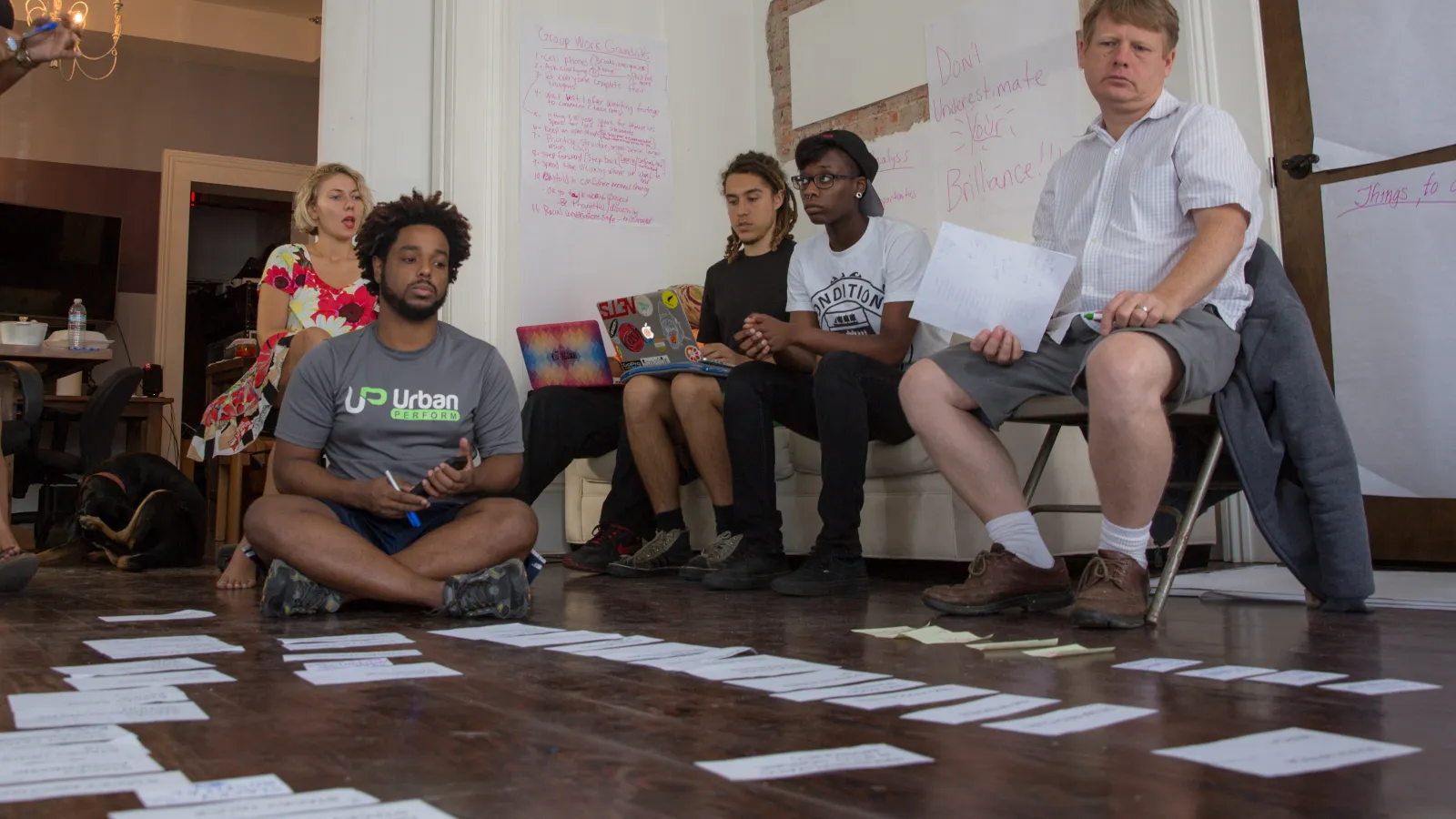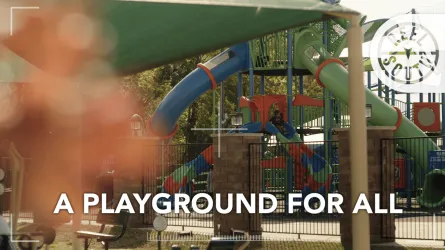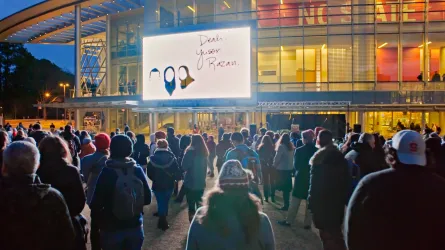Filmmaker Alex Glustrom captured a centuries-old black community in Louisiana, contaminated and uprooted by petrochemical plants, come to terms with the loss of its ancestral home in "Mossville: When Great Trees Fall." Despite nearly all residents being driven out, one man stands in the way of a plant’s expansion and refuses to give up. We connected to Glustrom to get his perspective on the creation of the film, including "slow-speed" chases with the plant's security team.
The interview has been edited for clarity.
What inspired you to make your film?
Living in Louisiana, I have always been attracted to the monstrous industrial plants that shore our state’s rivers and highways. While I know what they represent is terrifying and destructive, the mazes of steel piping with their lights and fire are nothing short of mesmerizing. I always thought it would make a compelling backdrop to a film. But once environmental rights lawyer Monique Harden, first took me to Mossville, our main character Stacey, really drew me in. Not only is he animated, determined and honest, but I found his story to be powerful and important. His struggle of being forced to choose whether to abandon his ancestral land in order to provide a better life for his son – whether to honor the promises to his parents weighed against his own self-preservation – is a complex dilemma. Further, on a worldwide level the way environmental racism is embedded into the oil and gas industry’s operations is an important truth to be told. The story of Sasol, an apartheid-born energy company, dealing the death blow to Mossville, a historical African-American town, exemplifies the way that these companies have been extracting land, resources, and labor from non-white populations since their inception.
Were there any parts you wish you could have included in the film? If so what were they?
There were a number of characters who I wish could have been included. We ultimately wanted to bring the viewer into just a couple character’s experiences and felt the more voices that were a part of the film, the less deep people could dive into our main subject’s lives. There was Haki, the former black-panther turned Rasta, wood-burning artist and goat herder who lives just around the corner from Mossville. Mr. Delma, the charismatic and outspoken Mossville activist who takes old electronics and breaks them down to recycle them in his driveway. Wilma Subra, the brave scientist who has tested Mossville residents' blood to prove the existence of high amounts of dioxins and subsequently had her office shot up by suspected refinery henchmen. Each of these characters really could be the main characters of their own film.
Were there parts with very interesting backstories that weren't totally relayed in the final film? Or what was your favorite behind-the-scenes moment?
One of the biggest behind the scenes dramas was our constant harassment from plant security and local law enforcement officers. We learned a choreographed dance with them that involved us filming the plants from the street and within a matter of minutes a plant security worker would approach us and ask us to stop filming. Fortunately we knew our rights and would politely explain that we were on a public road and it is perfectly legal to film as long as we are not obstructing traffic. He or she would then tell us to wait here until the police came. We would then kindly thank them for speaking with us but remind them that they don’t have the right to detain us and we would pack up our cameras and drive off. They would then follow us in their security cars and a low-speed chase around town would ensue until the real police would pull us over. The cops, who were very friendly with plant security but not so much with us, would make us sit on the curb, sometimes for more than an hour, run our licenses and ask us questions. Finally, because we had done nothing wrong they would have to let us go. At one point, after this happened a number of times, I received a call from an FBI agent who informed me that they received a tip that I was “acting suspiciously near a potential terrorist target” and he needed to ask me some questions. Two FBI agents met me in New Orleans and interrogated me for about an hour, but ultimately concluded that I wasn’t a terrorist and allowed me to go on my way. The next time I went to Mossville to film, the same thing repeated again. We finally discovered that if we crossed the Calcasieu river bridge into Lake Charles, the plant security wouldn’t follow us across the bridge, so that became our go-to route to lose them.
What do you hope people learn/hope they take away from your film?
For much of the country, stories of police brutality and the carceral state are important signifiers of racial inequality, but environmental racism is far too often overlooked despite it being a devastating force of violence and displacement. As we watch an unprecedented federal rollback of industrial regulations, and the effects of climate change become ever more apparent, the decisions of who suffers the consequences become increasingly critical. It is more important than ever that stories like Mossville demonstrate that race is a regularly determining factor of who is disproportionately denied access to clean air, land, and water. My hope is that the film can alter audiences’ perspectives as it has my own and force people to reckon with the realization of who most often bears the burden of our energy consumption and production.
Is there anything else you'd like to share with the Reel South audience?
If you want to join the fight against environmental oppression, look up an organization in your area. Fenceline communities are everywhere and grassroots organizations on the front lines of this fight need as much support as possible. Also, if you invest money, see where you are putting it. Divest from destructive fossil fuel companies and invest in renewable energy companies that are building a more sustainable future. And don’t forget to vote!
What advice would you give other filmmakers or others interested in documentary film?
Practice ethical documentary filmmaking, build a team of diverse voices, and include those affected by the story in some of the decision making processes. Don’t be exploitative or extractive, and always be transparent about your goals and intentions from the beginning. Creatively, follow your instincts and make bold choices. Don’t be afraid to create something different that you have never seen before. And lastly, stories don’t have to be “epic” to move audiences. You don’t need the most expensive camera package or the latest tools. Sometimes, simplicity is everything.
Can you complete this sentence: "What defines you..."
What defines you is the way you make people feel. The lasting impressions you make on your loved ones, friends, colleagues and even people you have fleeting encounters with. The people who see what you create and are inspired to be better humans or maybe to make their own art. I hope that I help people feel encouraged to be authentic and expressive, emboldened to speak out and stand up for what is right, and to have the courage and confidence to be uniquely who they want to be.
Category
Share


